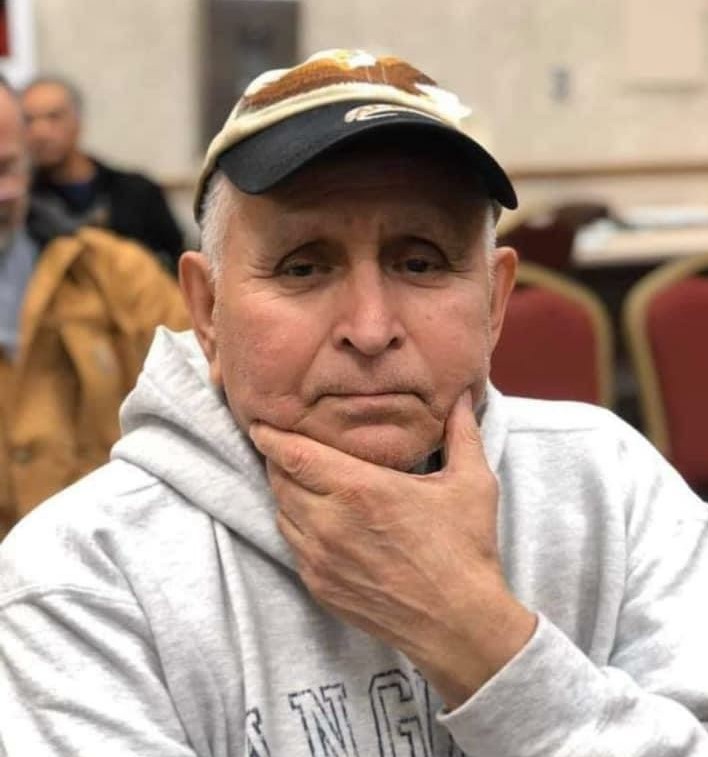
COVID-19 has claimed the life of an Angoon elder. Eighty-year old George Nelson Jr. died in December, after being hospitalized in Anchorage. As the Admiralty Island community grapples with its first coronavirus death, residents are also grieving the loss of a clan leader and bearer of Tlingit language and culture.
George Nelson Jr. didn’t learn English until he was around seven years old.
He grew up speaking Tlingit, and he wanted to make sure that the language didn’t die with him.
“When I needed help with my Tlingit, he was my Tlingit teacher,” his friend, neighbor and caretaker Mary Jean Duncan said. “I asked him about phrases and what’s the right way to say things. And then when he’d be talking to me too, he’d say things in Tlingit, and he’d say, ‘say it, say it too.’”
Nelson lived as one of 600 or so residents of Angoon, where he devoted himself to his community and his family. He worked as a fisherman, Village Public Safety Officer and custodian. He coached basketball, served on the local Tribal and city councils, filled in as mayor, and volunteered with the Angoon fire department. He also spent years as a delegate for the Central Council of Tlingit and Haida Indian Tribes of Alaska. President Richard Peterson was Nelson’s clan nephew. Both were members of the Eagle’s Nest House of Sitka. He said he was always full of encouragement.
“Some folks can kind of hold onto this knowledge and guard it pretty closely, and I think George was really free with it,” Peterson said. “He wanted to make sure people had the opportunity to know our history and stories and the language.”
Peterson said losing an elder like Nelson is a loss for the entire Tlingit community. He’s one of a handful of people across the region they’ve lost to COVID-19.
“You know, losing someone like George and some of the others that we’ve lost, really hit home for us just how serious this is,” he said. “We all need to take it serious.”

Nelson was also a father of three and a grandfather. He was visiting his family and going to medical appointments in Juneau when he got sick. His daughter Mary Hewson said she doesn’t know how he and several others in their household contracted the virus. Nelson and his grandson were both hospitalized.
“He didn’t go into any stores, and he didn’t allow anyone in the house. It’s kind of a real mystery about was happened,” Hewson said. “It was pretty devastating, pretty scary.”
Nelson spent weeks in the hospital. He was eventually intubated and medevaced to Anchorage. Hewson said that even while he was fighting for his life, he was thinking of others.
“Every day when I spoke to him it was always like are the boys okay,” she said. “And make sure you guys clean the doorknobs. Make sure you wash your hands. You know he was still constantly thinking about his grandkids and his kids. So that kind of just amazed me that as sick as he was he was still worrying about other people.”
Hewson said she wasn’t able to see him right before he died, but she was able to say goodbye over video chat. One of the hardest parts of losing her father has been the inability to grieve with others.
“It’s been pretty hard on the communities because we’re so used to being able to support the families in mourning in the way that we do things in our culture. So now it’s like everybody’s so isolated,” she said. “The things that were done when somebody passes aren’t being done. It’s left a big void in our community.”
Nelson will also be remembered for his sense of humor, his generosity, his will power and his faith. His family hopes to bring him back home to Angoon and follow the cultural traditions around mourning that Nelson taught to so many others in the community. But they’re waiting until the risk from COVID-19 subsides.
Erin McKinstry is a Report for America corps member.






























